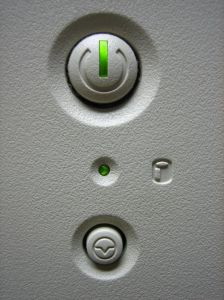Homeowner and renter insurance policy holders should check their policy and be sure to understand what is and what is not covered when the power goes out. Short power interruptions often cause damage to personal property and houses.
The most common and expensive damage happens when the power comes back on and a surge of electricity floods the open circuits in the house. A large blast of electricity can cause computers to lose data, electronics to overheat, malfunction of household electronic equipment such as heating systems and alarm equipment. Sometimes a surge can cause fires or the loss of electricity can cause people to create dangerous situations.
Homeowner and renter insurance policies Do NOT usually cover electronics and computers when there is a power surge due to power coming back on. Insurance companies expect policyholders to prevent valuable equipment from suffering from a power surge and to mitigate losses. Insurance companies expect policyholders to unplug all sensitive appliances and electronic equipment during the power outage and leave them unplugged until electricity is restored.
There may be events that cause some power outages, such as lightning or windstorm power outages, which may be covered for renters and homeowners under their insurance policies. Personal property isn’t usually covered for power outages caused by an event that happens outside or off the homeowners property or the insured unit for renters. There are some special coverage endorsements and even some separate insurance policies that will add coverage for business property. Others may offer additional coverage for a home computer. Your insurance company or agent should be able to discuss coverage for some damages that may be related to power outages.
 |
Power outages and surges can’t be predicted but careful planning and risk management can help insured consumers be prepared for mitigating their losses when facing the risk of power surges. By following some simple guidelines, you can prevent a loss:
- Unplug sensitive equipment such as televisions and computers. Don’t plug them back in until after the electricity is restored. Plug one thing in at a time once the power is back on.
- Do not Open the Doors: To prevent refrigerated food from spoiling keep refrigerator and freezer doors closed as much as possible until the power is restored.
- Always Keep a battery-operated radio, extra batteries, flashlight(s), canned food and a hand opener, and bottled water in the home just in case of a power outage.
- Do not use Candles and if you do only use one blow it out if you go to sleep.
- If you have a home generator, be sure to follow All of the directions and use only outside of the home. Never use a generator inside of a garage or shed.
- Do not attempt to heat the inside of the home with a barbeque or outdoor propane, or gas grill. People really have done this and many don’t live to tell the story.
Everyone should talk about their specific insurance needs with an agent and decide which policy offers the correct amount of coverage. If homeowner or renter insurance policy holders have questions about what is and is not covered on their policy in the event of a power outage, they should feel free to talk to their insurance agent or company and understand the conditions, exclusions and limitations of the type of insurance they have.
Photo credit for this blog entry:  (no use restrictions for this photo)
(no use restrictions for this photo)
![]() Related Blogs:
Related Blogs:
- Power Surge And Electrical Outages.
- ‘Tis The Season for Lights and Fire Claims! Tips For Safe Lighting
- Homeowners Guide For Action When The Power Goes Off.
Glossary of Insurance Terms:
A | B | C | D | E | F | G | H | I | J-K | L | M | N | O | P | Q-R | S | T | U-V | W-Z
Families.com Blogs are for informational purposes only. Families.com assumes no responsibility for consumer choices. Consumers are reminded that it is their responsibility to research their choices properly and speak to a certified insurance professional prior to making any decision as important as an insurance purchase.

